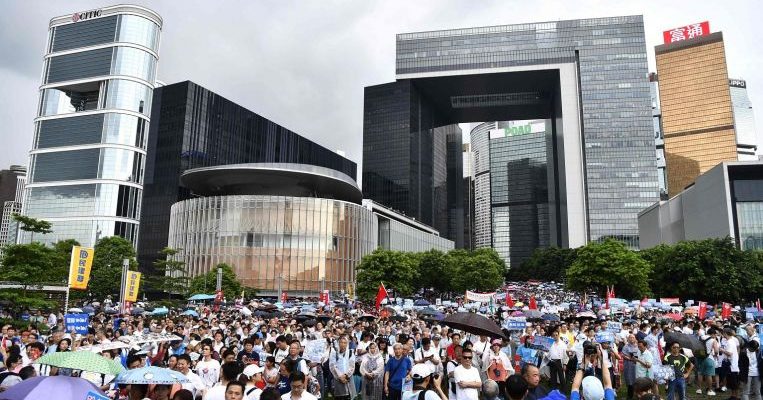
HONG KONG • Hong Kong’s embattled leader will not be making further concessions to the city’s protesters, one of her top advisers said, as the government over the past month and more planned for today and the coming weeks.
Chief Executive Carrie Lam will focus instead on hearing from various sectors of the city’s population and drafting a broad policy address for delivery in mid-October, said Mr Bernard Chan, convenor of the Executive Council, or Cabinet.
Mr Chan’s remarks indicate that Mrs Lam’s administration is confident of weathering further protests, despite violent clashes and signs that the economy could suffer.
In her October address, Mrs Lam plans to emphasise that the government will improve public consultation before rolling out new draft laws or policies, Mr Chan said.
The , which started early last month, were driven by Mrs Lam’s hasty introduction of a Bill that would have allowed extraditions to mainland China.
The Bill angered a broad swathe of the Hong Kong public, who worried that it would potentially expose anyone in the city to trials in the mainland’s opaque judicial system.
Even though Mrs Lam has apologised for introducing the Bill and , protests have continued to draw large crowds.
Demonstrators have demanded the formal withdrawal of the legislation, Mrs Lam’s resignation and an independent inquiry into the police’s actions against demonstrators, among other things.
“I don’t think they would stop even if you met their demands,” Mr Chan said. “They just don’t want Hong Kong to be part of China, which is impossible.”
He added that Mrs Lam would not resign and said he had not heard her express any desire to do so, even in private.
She is also unlikely to reopen the longstanding issue of introducing universal suffrage, Mr Chan said.
He added that universal suffrage would be up for negotiation only if democracy advocates accepted a proposal made by Beijing five years ago to allow general elections for the city’s top job – provided that a committee dominated by Beijing loyalists decided which candidates would be allowed on the ballot.
The Umbrella Movement protesters rejected the offer as inadequate, and the proposal did not become Hong Kong law.
But a delay carries risks for both the government and the protesters.
Further protests could hurt the local economy. The parent companies of brands such as Swatch, Cartier and Van Cleef & Arpels have reported in recent days that their second-quarter financial results were hurt by faltering sales in Hong Kong, a major retail and finance hub for East Asia, particularly China.
Financial leaders say that some wealthy families from mainland China and Hong Kong have been transferring sizeable chunks of their holdings from Hong Kong to accounts elsewhere, especially in Singapore.
More protests could also result in injuries or deaths among demonstrators or police.
Many pro-democracy advocates, however, have said the movement has remained united even when some protesters have taken a more confrontational approach.
Protest organisers say that they believe that they have the stamina and public support to last in a prolonged dispute. Ms Bonnie Leung, a vice-convenor of the Civil Human Rights Front, which is one of the main groups backing the protests, said that police had used excessive force against demonstrators and were therefore responsible for violence by protesters.
“We cannot control the protests; we do not want to,” she said. “If the police behave themselves, protesters will be peaceful.”
Yesterday, tens of thousands rallied in support of Hong Kong’s police and the pro-Beijing leadership, illustrating the polarisation coursing through the city after weeks of anti-government demonstrations.
Protest organisers say that they believe they have the stamina and public support to last in a prolonged dispute.
Ms Bonnie Leung, a vice-convenor of the Civil Human Rights Front – one of the main groups backing the protests – said that police had used excessive force against demonstrators and were responsible for violence by protesters.
“We cannot control the protests; we do not want to,” she said. “If the police behave themselves, protesters will be peaceful.”
NYTIMES, AGENCE FRANCE-PRESSE
